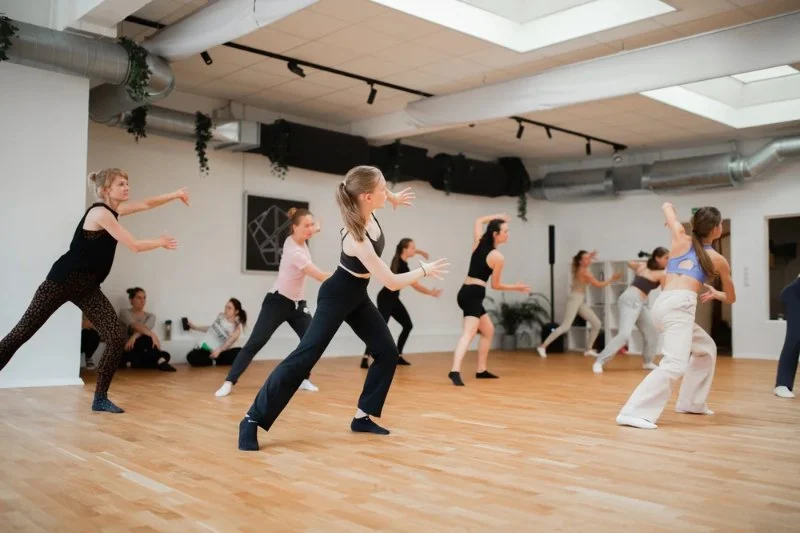
- What is a Dance Workshop?
- Benefits of Attending a Dance Workshop
- Who Should Take a Dance Workshop?
- How to Choose the Right Dance Workshop
- What to Expect from a Dance Workshop
1. What is a Dance Workshop?
A dance workshop is an intensive, short-term class or seminar focused on teaching participants various aspects of dance. These workshops are often led by expert instructors and can vary in style, such as contemporary, ballet, hip-hop, or jazz. Unlike regular dance classes, workshops are typically designed to give dancers an immersive experience, whether they’re beginners or advanced practitioners.
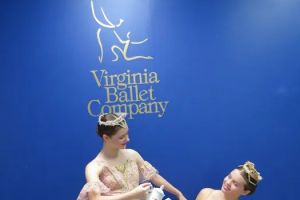
Virginia Ballet Company & School / virginia ballet company
5595 Guinea Rd, Fairfax, VA 22032, USA
1.1 The Structure of a Dance Workshop
Dance workshops usually last anywhere from a few hours to several days, offering a deeper dive into specific techniques, choreography, or performance aspects. They are often more hands-on than regular lessons, providing participants with the opportunity to work closely with experienced dancers and instructors.

Electric Cowboy Longview / electric cowboy longview photos
1016 McCann Rd, Longview, TX 75601, USA
1.2 Different Types of Dance Workshops
Dance workshops can cater to all levels of dancers. From beginners looking to improve their technique to seasoned professionals aiming to learn a new style or perfect a routine, there is a workshop for everyone. Workshops may also be centered around specific themes or events, such as a particular dance style, culture, or even a collaboration with live music.
2. Benefits of Attending a Dance Workshop
Attending a dance workshop offers numerous benefits for dancers of all levels. Some of the top reasons to participate include:
2.1 Skill Development
Dance workshops provide an excellent opportunity to learn and refine new dance skills. Instructors often focus on specific movements or techniques that can help improve your overall dancing ability.
2.2 Personal Growth
Workshops challenge dancers to step out of their comfort zones, explore new styles, and build confidence. They often provide an inspiring atmosphere where participants can push themselves creatively and physically.
2.3 Networking and Community
One of the best parts of attending a dance workshop is the community it creates. You’ll have the chance to meet like-minded dancers, share experiences, and even form lasting friendships. For professional dancers, workshops can also be a great networking opportunity.
3. Who Should Take a Dance Workshop?
Dance workshops are for anyone who has a passion for dancing and wants to improve their skills, learn new techniques, or experience something different. Whether you’re a hobbyist or an aspiring professional, there’s always something to gain.
3.1 Beginners
Even if you're new to dancing, workshops can be a great way to accelerate your learning. Many workshops cater specifically to beginners, offering basic steps, techniques, and fundamental movements in a supportive environment.
3.2 Intermediate Dancers
For intermediate dancers, workshops provide a more in-depth look at specific styles or techniques. These workshops are great for fine-tuning your existing skills and learning from experienced instructors.
3.3 Advanced Dancers
Advanced dancers can benefit from specialized workshops designed to challenge their skills and explore more complex movements and choreography. These workshops often push dancers to the next level and help them stay inspired and motivated.
4. How to Choose the Right Dance Workshop
With so many dance workshops available, it’s important to choose one that aligns with your skill level, goals, and interests. Here are a few tips to guide your selection:
4.1 Determine Your Goals
Are you looking to learn a specific dance style or improve your overall technique? Make sure the workshop aligns with your goals, whether that’s improving flexibility, learning choreography, or focusing on a particular style like ballet or hip-hop.
4.2 Research the Instructors
Look for workshops that are taught by experienced instructors with a solid reputation in the dance community. Research their backgrounds and teaching style to ensure they align with your learning preferences.
4.3 Consider the Workshop Format
Some workshops may be focused on individual learning, while others may be group-based or performance-oriented. Choose a format that best suits your learning style and what you hope to achieve during the workshop.
5. What to Expect from a Dance Workshop
Participating in a dance workshop can be an exhilarating experience. Here’s what you can typically expect:
5.1 Hands-On Learning
You’ll spend most of your time actively learning, practicing, and receiving personalized feedback from the instructor. This direct interaction helps you progress faster than in traditional classes.
5.2 A Challenging Environment
Dance workshops are designed to challenge you, so be prepared to step outside your comfort zone. This can be intimidating, but it’s also where the most growth happens.
5.3 Performance Opportunities
Some workshops offer the chance to perform in front of an audience, giving you a taste of what it’s like to showcase your skills in a real-world setting. This is an invaluable experience for aspiring dancers.
If you’re interested in finding the perfect dance workshop for your goals, consider visiting Creative Edge Dance Studio, where you can find a variety of dance classes and workshops tailored to your needs.
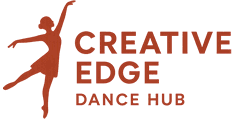
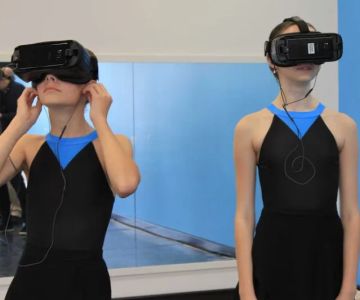
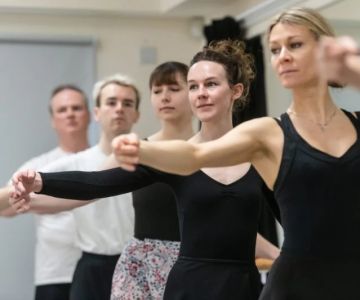
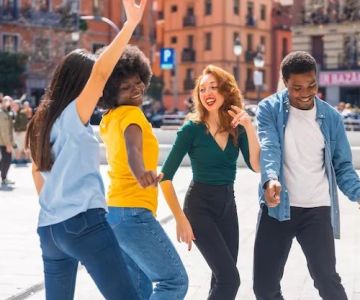
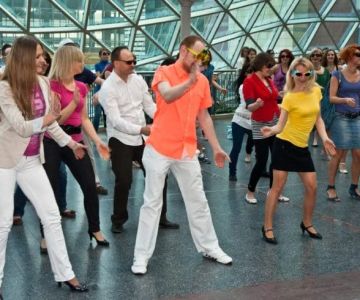
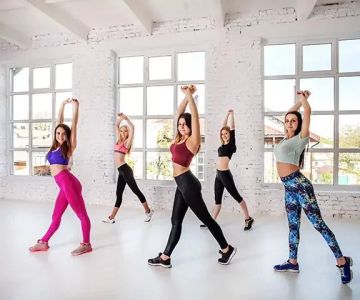
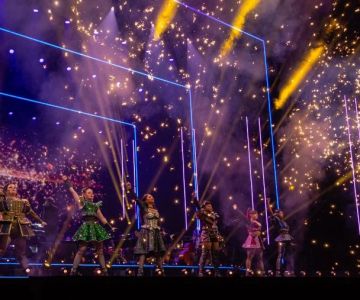
 The Woody on Main4.0 (349 reviews)
The Woody on Main4.0 (349 reviews) The Arts Center For All4.0 (14 reviews)
The Arts Center For All4.0 (14 reviews) Showcase Studioz5.0 (7 reviews)
Showcase Studioz5.0 (7 reviews)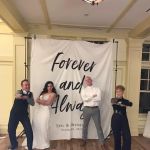 Dance Masters Entertainment4.0 (67 reviews)
Dance Masters Entertainment4.0 (67 reviews)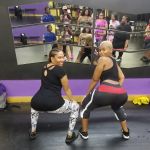 Royalty4.0 (97 reviews)
Royalty4.0 (97 reviews)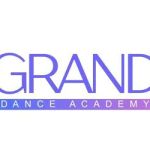 Grand Dance Academy0.0 (0 reviews)
Grand Dance Academy0.0 (0 reviews) The Influence of Music Videos on Dance Class Trends
The Influence of Music Videos on Dance Class Trends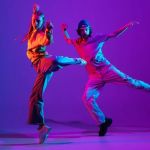 What It Means to Be a “Gymnastics” Background Dancer in a Hip-Hop World
What It Means to Be a “Gymnastics” Background Dancer in a Hip-Hop World My Top 8 Dance Shoes for Studio & Stage – What I Love and Why
My Top 8 Dance Shoes for Studio & Stage – What I Love and Why My Experience With Dance & Peer Support Groups — My Story
My Experience With Dance & Peer Support Groups — My Story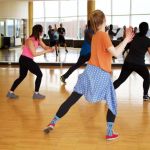 How to Create a Dance Practice Schedule That You'll Actually Stick To
How to Create a Dance Practice Schedule That You'll Actually Stick To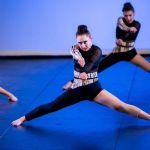 How to Develop Faster Footwork for Any Dance Style
How to Develop Faster Footwork for Any Dance Style